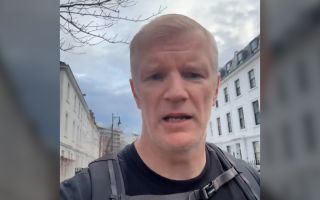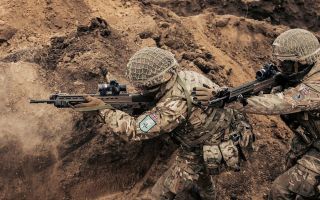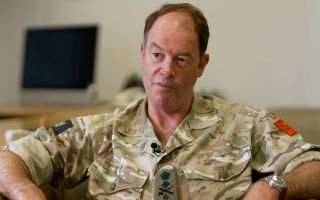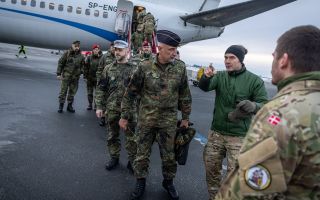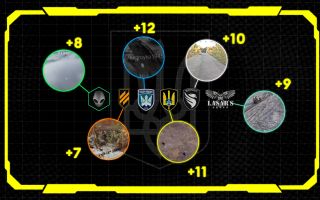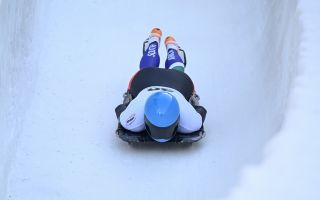Ex-Commando's New Heart Gives Him 'A Second Life' As Organ Transplant List Grows
The number of people waiting for a transplant is expected to reach a five-year high in the wake of the COVID-19 pandemic.
New figures from the NHS estimate 6,700 people across the UK are currently in need of a transplant – up from approximately 6,138 before the start of the pandemic.
As the NHS faces a huge backlog in transplant surgery, former Army commando Phill Hardwell has told Forces News "it’s like having a second life" after receiving a new heart at the height of the crisis.
"I’ve got a lot more energy. I’m able to go out and play with the kids and take the dog for a long walk, about a mile or so a day," Phill said.
The father of two is enjoying being able to see his family at home in Bristol after the successful surgery and more than five months in hospital.
He was medically discharged from the Army due to poor health, after being diagnosed with Arrhythmogenic Right Ventricular Cardiomyopathy (ARVC) – a rare heart disease that makes the wall of the heart harden.
He was part of the 29 Commando Regiment of the Royal Artillery for 12 years, serving on two tours of Afghanistan, as well as in the Falklands and Norway.
While on critical care, he was one of the sickest patients being looked after at Cambridge's Royal Papworth Hospital.
Despite being only 32 years old, he needed eight surgeries before he was well enough for the transplant surgery to go ahead.
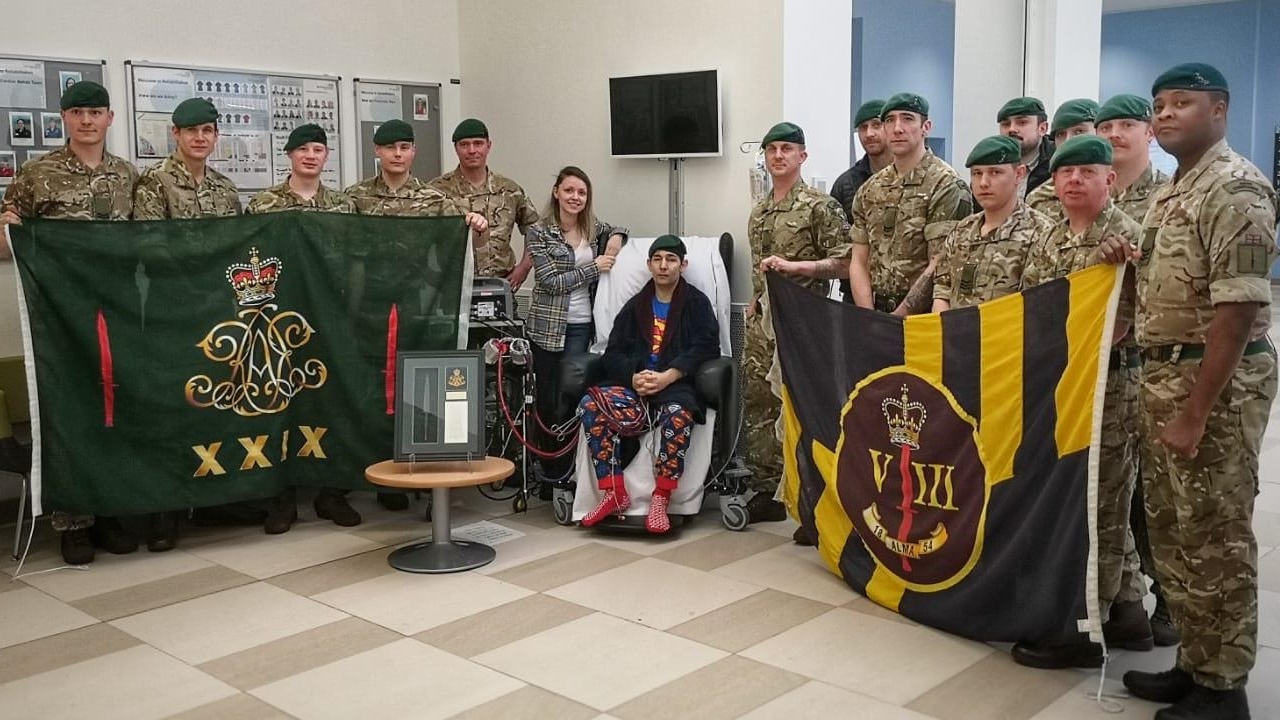
Being more than 150 miles from home, a surprise hospital visit from members of his Army regiment – arranged by his wife Roxy – helped to boost Phill’s spirits.
They presented him with a military beret, and a framed Commando dagger alongside the Commando prayer.
They also played him video messages from soldiers who couldn't be there.
Phill says his time in the forces gave him the strength to keep going.
"Being in the Army, I thought I was invincible," he said.
"It took a while to sink in when they told me that I had this disease because I still felt okay in myself, I kind of kept going as normal, but then once I was in hospital for five months, that military service gave me that mental resilience to keep going."
Dr Sai Bhagra, a consultant cardiologist at Royal Papworth Hospital, was involved with Phill’s care.
He explained why COVID-19 has meant many surgeries have been put on hold, especially as organ donors are usually from intensive care.
"The bigger impact has been that patients have had to wait longer at the peak of the crisis," Dr Bhagra said.
"It’s multi-faceted. It’s not one single factor.
"The ICUs [Intensive Care Units] were full of patients who had COVID and obviously someone with COVID, regardless of their wishes to donate, is not a possible donor."
"We presume that you transfer COVID along with the transplant and no-one wants to do that."
Next of kin have the final say on whether organ donation goes ahead, even if there is an opt-out system in place, as there has been in England since May 2020.
"I know it’s a sensitive subject to chat about with your family, but to be able to prolong someone else’s life after you pass, I think, is incredible really," said Phill.
Dr Bhagra explained just how vital these conversations can be.
"The thing that sometimes gets extremely frustrating for us as clinicians, is we hear about potential donors who had signed themselves on to the organ donation list and then we find that the families – they don’t know about it.
"You’re having organs that are very good and you’re unable to utilise them to help somebody else because the person did not communicate it with their family."
With his new heart, the former commando plans to return to work by the end of this year and is aiming to do the Bristol half marathon next September.

